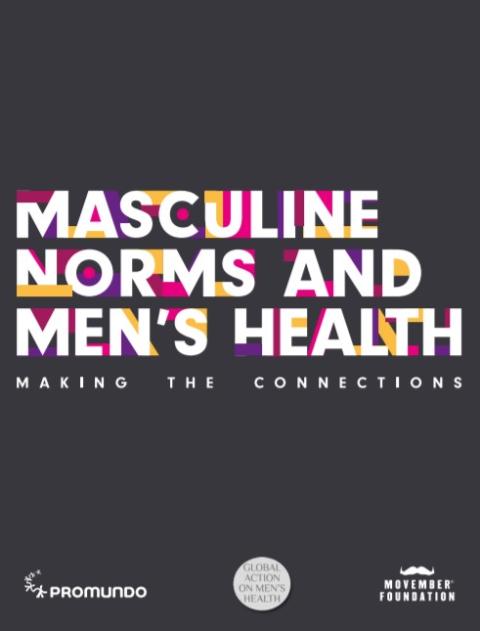- Report
- 1 January 2019
Masculine norms and men's health: Making the connection
- Author: Cody Ragonese, Tim Shand, Gary Barker
- Published by: PROMUNDO, Global Action on Men's Health, Movember Foundation

What are the links between masculine norms and men’s health outcomes globally?
What implications do these links have for efforts to improve men’s health – alongside efforts to improve the health of women and children – and as part of broader efforts to create healthier, thriving societies?
This new report provides an overview of the current state of men’s health globally and illustrates the direct connections between health-risk behaviours and salient masculine norms. Presenting a new analysis of men’s health using data from the 2016 Global Burden of Disease (GBD), the report outlines the leading causes of morbidity and mortality among men globally. It also presents evidence on the connections between hegemonic masculine norms and influential health-risk behaviours, including poor diet, substance use, occupational hazards, unsafe sex, and limited health-seeking behaviour.
The report emphasizes that salient norms related to masculinities and the gendered nature of men’s lives are a driving force in men’s ill-health. While biological factors are involved in male-specific ill-health, the vast majority of men’s morbidities and excess mortality is related to health practices, and the social and cultural influences that shape them. In short, while some gender norms can be protective in terms of health outcomes, men’s poor health is most often driven by their efforts to live up to or adhere to restrictive societal norms related to manhood.
- Countries / Regions:
- Global
Related resources
Report
14 September 2020

Report
1 April 2018
Report
9 September 2020
